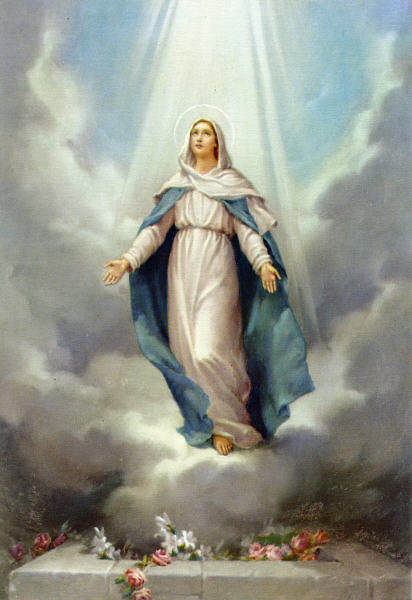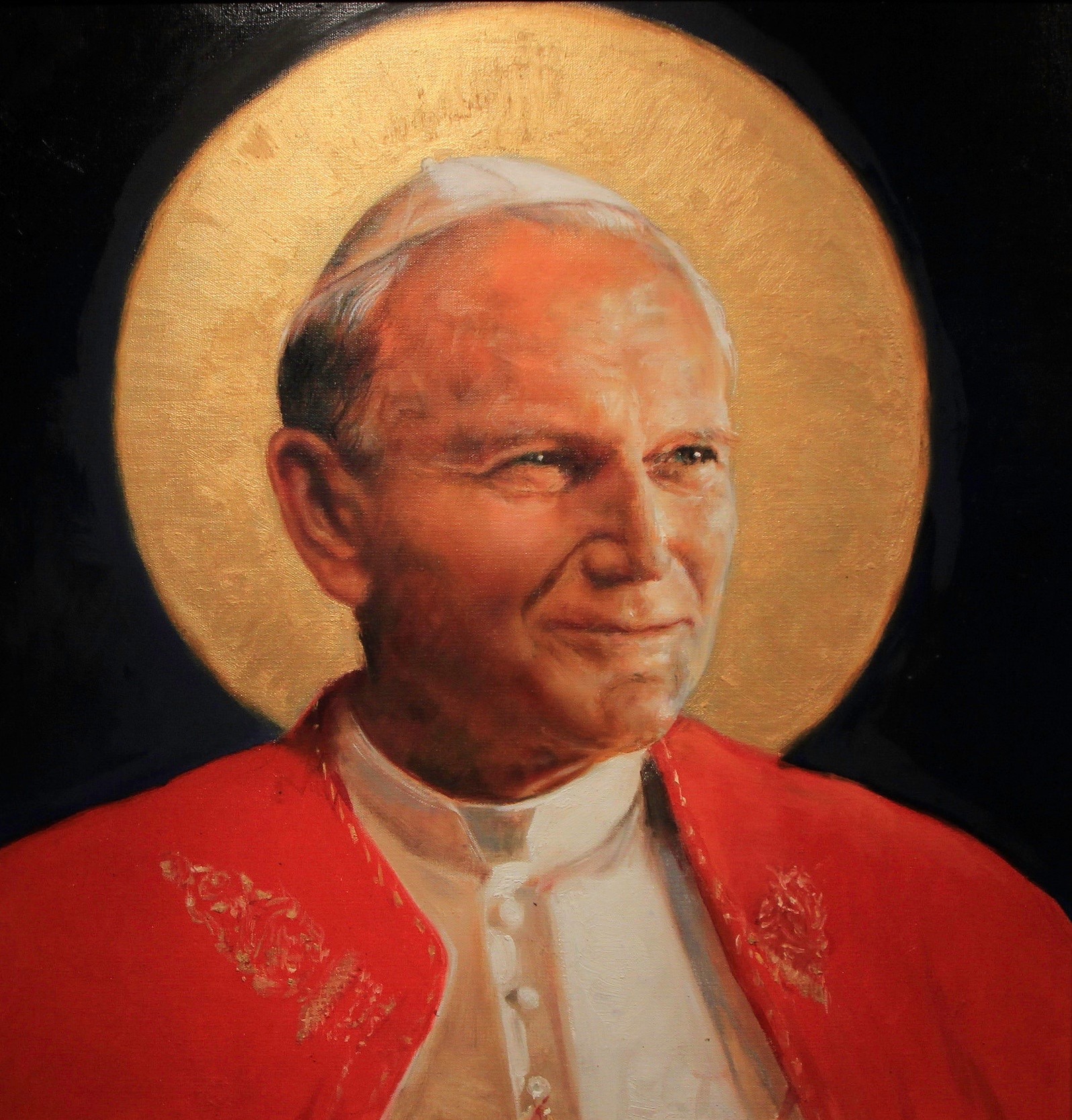The Assumption of Our Lady
Saint Pope John Paul II
The Assumption of Mary: An excerpt from Saint Pope John Paul II’s Catechesis General Audience
Concerning the end of Mary’s earthly life, the Council uses the terms of the Bull defining the Dogma of the Assumption and states: “’The Immaculate Virgin, preserved free from all stain of original sin, was taken up body and soul into heavenly glory, when her earthly life was over” (Lumen gentz’um, n. 59). With this formula, the Dogmatic Constitution Lumen gentium, following my Venerable Predecessor Pius XII, made no pronouncement on the question of Mary’s death. Nevertheless, Pius XII did not intend to deny the fact of her death, but merely did not judge it opportune to affirm solemnly the death of the Mother of God as a truth to be accepted by all believers.
Christ Made Death a Means of Salvation
Some theologians have in fact maintained that the Blessed Virgin did not die and was immediately raised from earthly life to heavenly glory. However, this opinion was unknown until the 17th century, whereas a common tradition actually exists which sees Mary’s death as her entry into heavenly glory.
Involved in Christ’s redemptive work and associated in His saving sacrifice, Mary was able to share in his suffering and death for the sake of humanity’s Redemption. What Severus of Antioch says about Christ also applies to her: “Without a preliminary death, how could the Resurrection have taken place?” To share in Christ’s Resurrection, Mary had first to share in His death.
The New Testament provides no information on the circumstances of Mary’s death. This silence leads one to suppose that it happened naturally, with no detail particularly worthy of mention. If this were not the case, how could the information about it have remained hidden from her contemporaries and not have been passed down to us in some way?
As to the cause of Mary’s death, the opinions that wish to exclude her from death by natural causes seem groundless. It is more important to look for the Blessed Virgin’s spiritual attitude at the moment of her departure from this world. In this regard, St.
Francis de Sales maintains that Mary’s death was due to a transport of love.
Mary’s Death was an Event of Love
Whatever from the physical point of view was the organic, biological cause of the end of her bodily life, it can be said that for Mary the passage from this life to the next was the full development of grace in glory, so that no death can ever be so fittingly described as a “dormition” as hers.
In some of the writings of the Church Fathers we find Jesus himself described as coming to take his Mother at the time of her death to
bring her into heavenly glory. In this way, they present the death of Mary as an event of love which conducted her to her divine Son to share His immortal life. At the end of her earthly life, she must have experienced, like Paul and more strongly, the desire to be freed from her body in order to be with Christ for ever (cf. Phil 1:23).
The experience of death personally enriched the Blessed Virgin: by undergoing mankind’s common destiny, she can more effectively exercise her spiritual motherhood towards those approaching the last moment of their life.
John Paul 11, OR. No. 27,—7/2/97

The Assumption of Our Lady



